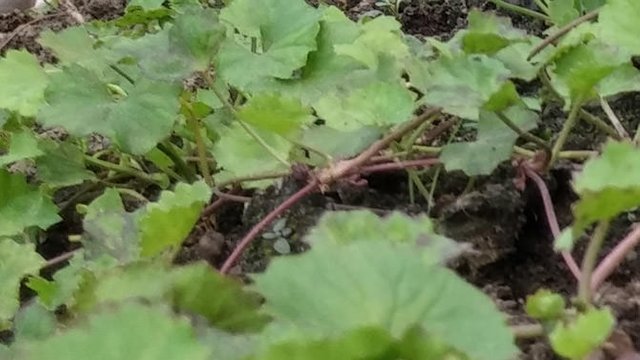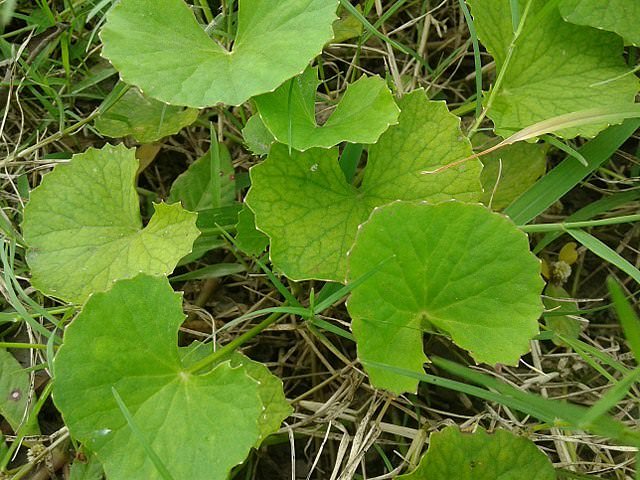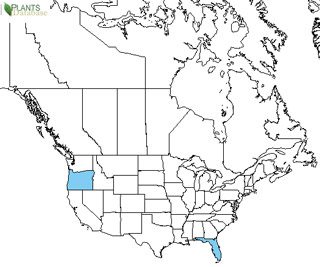Getting to Know Herbs: Gotu Kola
Gotu kola has a common use as a culinary vegetable and medicinal herb of balance and joy. As a nerve tonic it promotes alertness, expansion and confidence to help us move forward when we need to. When withdrawn and in retreat, this herb can improve social skills and make it easier to get close to others.

Photo by @krnel
Centella asiatica is the scientific botanical name. Gotu kola is a common name, as well as centella and Asiatic pennywort. Oter names include Brahma-Buti, Brahma-Manduki, Centellase, Centella asiatica, Centella Asiática, Centella Asiatique, Centella coriacea, Divya, Gota Kola, Hydrocotyle asiatica, Hydrocotyle Asiatique, Hydrocotyle Indien, Indischer Wassernabel, Indian Pennywort, Indian Water Navelwort, Ji Xue Cao, Khulakhudi, Luei Gong Gen, Luo De Da, Madecassol, Mandukaparni, Manduk Parani, Mandukig, Marsh Penny, TTFCA, Talepetrako, Thick-Leaved Pennywort, Tsubo-kusa, Tungchian, White Rot.

wikimedia/Vespertunes - CC BY-SA 4.0
Key Points
- long history of Traditional Chinese and Ayurvedic medicinal use
- boosts mental state and treats a variety of disorders
- used as a food across Asia
- minor potential side effects
History
Gotu kola has been nused for thousands of years in India, China and Indonesia. In Ayurvedic medicine it brings balance to all three body types: vata, pitta, and kapha. In China, it's been used as far back as the 1st and 2nd centuries, referred to as "the fountain of life", with claims of living over 200 years.
Where is it found?
Gotu kola is native to the wetlands of Southeastern USA, Southeast Asia and India. As an aquatic plant, it's sensitive to chemical and biological pollutants in water which can be absorbed. In can grow in drier soil as long as water is regularly provided.
What's it used for?
The above ground parts are used to make medicine, commonly used in traditional Chinese and Ayurvedic medicine. A common use is in treating bacterial, viral, or parastitic infections such as urinary tract infection (UTI), shingles, leprosy, cholera, dysentery, syphilis, the common cold, influenza, H1N1 (swine) flu, elephantiasis, tuberculosis, and schistosomiasis.
Gotu kola is also used for fatigue, anxiety, depression, psychiatric disorders, Alzheimer's disease, and improving memory and intelligence. This is why it's a herb of joy and balance.
It's also used in wound healing, trauma, and circulation problems (venous insufficiency) including varicose veins, and blood clots in the legs. Some women use it prevent pregnancy and arouse sexual desire. Other uses include for sunstroke, tonsillitis, fluid around the lungs (pleurisy), liver disease (hepatitis), jaundice, systemic lupus erythematosus (SLE), stomach pain, diarrhea, indigestion, stomach ulcers, epilepsy, asthma, “tired blood” (anemia), diabetes, and for helping them live longer.
Gotu kola can also be used to treat trauma, and circulation problems (venous insufficiency) including varicose veins, blood clots in the legs, and can be applied to the skin for wound healing and reducing scars and stretch marks.
The chemicals in Gotu kola decrease inflammation and blood pressure in veins, and increase collagen production.
Myanmar cuisine uses Gotu kola a lot in salads. Sri Lanka uses it a lot as the most dominant leafy green to eat, traditionally with rice and curry, and in vegetable dishes. It's also used as a drink or eaten raw in salads in Thailand and Vietnam.
Are there any risks?
During pregnancy, skin application appears to be safe, but not oral use. Internal consumption during breast feeding should also be avoided just to be safe. Some concern is raised as to possible liver damage. Those with liver issues should avoid. Sleepiness or drowsiness may result with large doses, so avoiding this herb before surgery is wise, lest it affect medications given.
The affect on sleepiness means it interacts with sedative medications like clonazepam (Klonopin), lorazepam (Ativan), phenobarbital (Donnatal), zolpidem (Ambien), and others. Medications that can harm the liver should not be taken with Gotu kola, such as acetaminophen (Tylenol and others), amiodarone (Cordarone), carbamazepine (Tegretol), isoniazid (INH), methotrexate (Rheumatrex), methyldopa (Aldomet), fluconazole (Diflucan), itraconazole (Sporanox), erythromycin (Erythrocin, Ilosone, others), phenytoin (Dilantin), lovastatin (Mevacor), pravastatin (Pravachol), simvastatin (Zocor), and many others.
References:
Previous posts on Getting to Know Herbs:
Common Verbana/Vervain | Holy Basil | Sweet Annie | Globe Artichoke | Butterfly Weed / Pleurisy Root | Joe-Pye Weed / Gravel Root | Valerian | Malva/Mallow | Boneset | Elecampane | Lungwort | Cramp Bark | Motherwort | Common Plantain | Eleuthero (Siberian ginseng) | Black Cohosh | Common Bearberry | Mahonia Mountain Grape (Oregon Grape) | Blue Cohosh | Goldenseal
Thank you for your time and attention. Peace.
If you appreciate and value the content, please consider: Upvoting, Sharing or Reblogging below.
 me for more content to come!
me for more content to come!
My goal is to share knowledge, truth and moral understanding in order to help change the world for the better. If you appreciate and value what I do, please consider supporting me as a Steem Witness by voting for me at the bottom of the Witness page.


Very informative and truly interesting. Gotu Kola is in use since time immemorial for mental alertness.
Yup, I'll have to try it out sometime ;)
Gotu Kola is a Sri Lankan term for this plant.
The language is known as "Sinhalese"
Gotu -means ROUND
Kola - means Leaf or Leaves.
I have stayed in Sri Lanka for many extended visits and this is one of the most common leaves they have for lunch as a sambol or salad.
Thanks for the extra info ;)
People take gotu kola supplements to increase alertness, focus, memory and neurons. It is said to help with occasional absentmindedness related to aging and reduce mental fatigue.
Then we better start eating lots of it as we get older ;)
Herbs were very essential for the health esp in the ancient times and until now we were still using it and most medicine were coming from the herbs.
it has lotf of benefits to my knowledge, thanks
Indeed. Have you used it for anything?
the first time I've learned from your article
It's very useful.
What's it useful for?
wow such a very usefull herbs and very nice picture and your discription so knowledgeble. great job
Thanks, but the picture is a bit out of focus though...
Woo! Love your post - we've given you a wee upvote with a chance to be featured in the weekly curation. Hope this helps you continue to write such amazing posts. We encourage you to use the #naturalmedicine tag so we can more easily find you.
We're also running a contest this fortnight you might like to enter - pop over and check it out. There's some Steem for prizemoney too!
If you're a supporter of all things natural healing, and haven't already got on board our collective, you might like to read our introductory post here. We'd also love to welcome you on Discord here!!